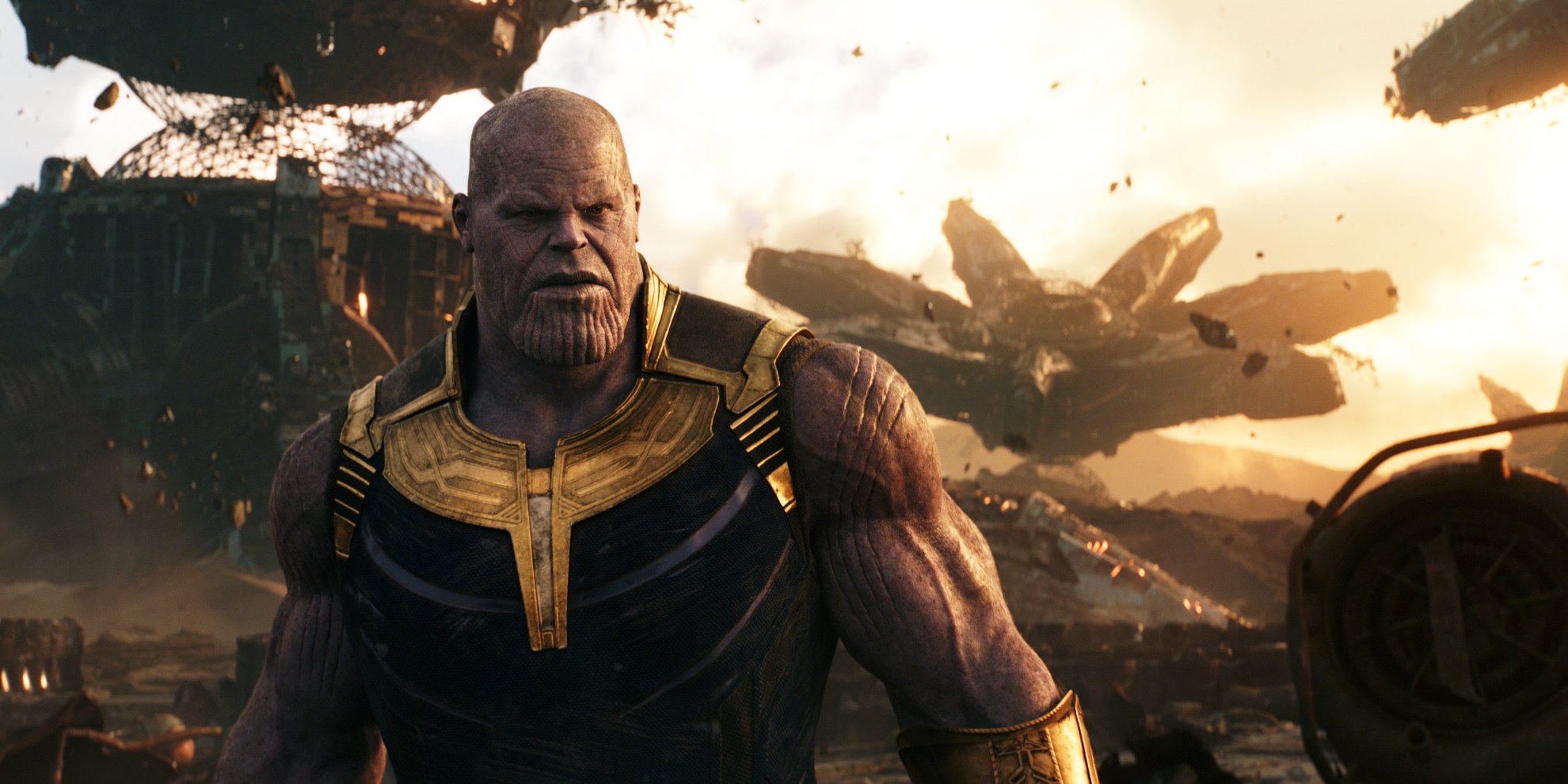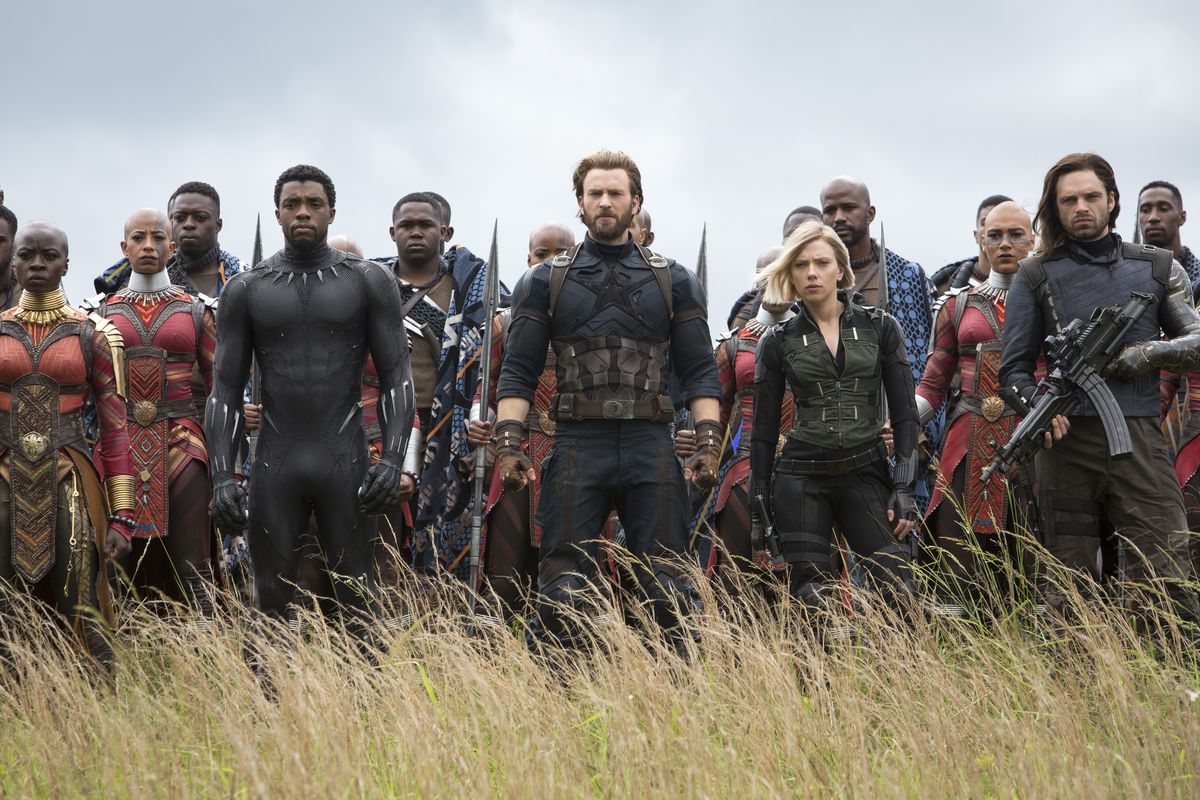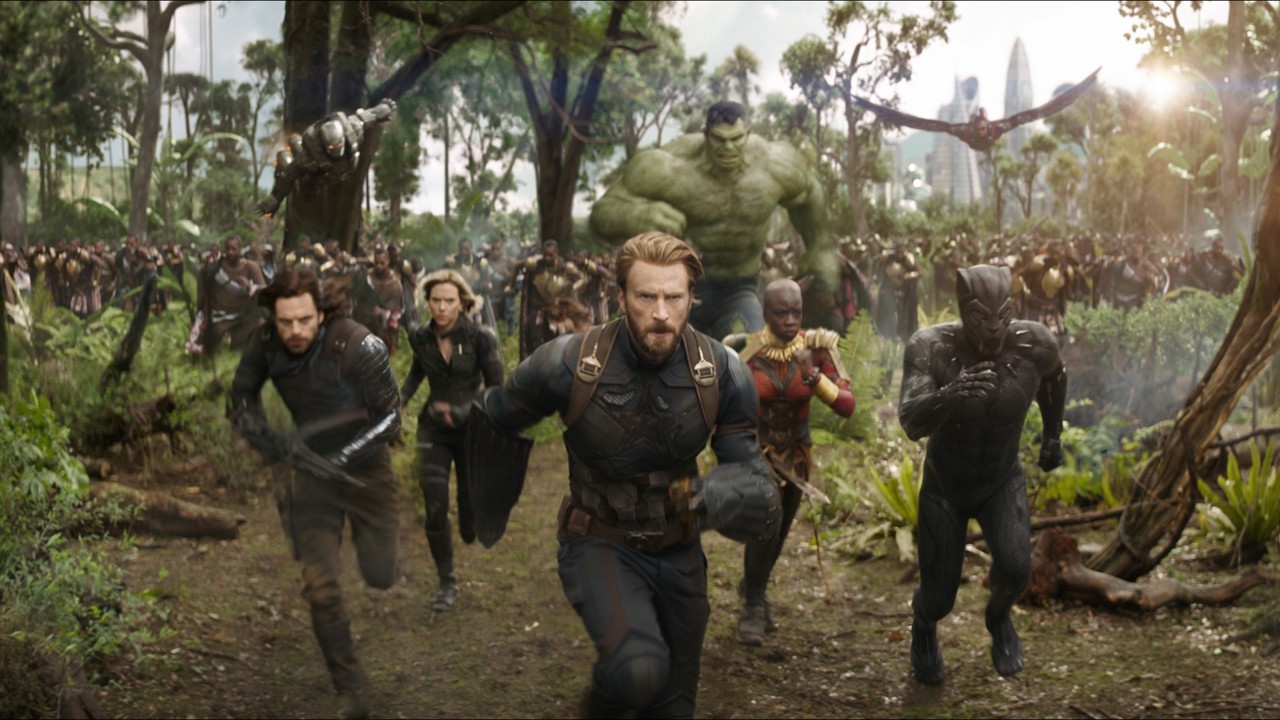It’s probably pointless to try to write a review of Infinity War. [Don’t worry, no spoilers.]
It’s certainly pointless in the traditional way, as a verdict: two and a half stars, B-plus, 72 percent, thumbs up. It’s pointless to talk about the lighting or the editing, the performances or the sound design.
All of this is pointless, to one degree or another, because Infinity War is not a movie.
OK, yes, sure: it’s a thing that you can go to a theater to see, all silently staring in the same direction. Fine. But, judging by the signs that have filled my theater last month, you could do the same thing with the finale of The Walking Dead. So — other than the millions and millions more one cost than the other — what’s the difference?
Like the Walking Dead finale, Infinity War does not even pretend to have a hook for newcomers. It begins immediately with the aftermath of Thor: Ragnarok and does not stop for a moment to explain anything. About a half hour of the film is characters meeting and reuniting with each other … but if you don’t know why this person is mad at that one, why this meeting is awkward and that meeting is joyful, too bad.
There are none of those clear, clean, effective character arcs Marvel movies are known for, mostly because no one is on screen long enough to go through one. (Somehow, the Guardians of the Galaxy get perhaps the biggest screen role. If anyone would have told me Andy Dwyer would be upstaging Iron Man and Captain America, I would never have believed them.)
 I’ve noticed some reviewers try to frame the central arc as that of Thanos, Josh Brolin’s giant purple growler. But although Brolin makes the character far more effectively emotional than anyone expected, there is no real arc there, either — just a couple of flashbacks and a much, much less stupid motivation than his comic book counterpart.
I’ve noticed some reviewers try to frame the central arc as that of Thanos, Josh Brolin’s giant purple growler. But although Brolin makes the character far more effectively emotional than anyone expected, there is no real arc there, either — just a couple of flashbacks and a much, much less stupid motivation than his comic book counterpart.
All of this, though, is irrelevant. All of these traditional aesthetic values that can be used to divine the good blockbusters from the bad — depth of character, a self-contained well-structured story — are only valuable to the extent that they allow the viewer to know where to invest their emotional energy. There is no more energy to invest here. This is the payoff.
What Infinity War is is a climax, one that lasts longer than any climax has before. It’s a physically exhausting thing to go through, but it’s never boring.
 It’s never boring because boredom is (usually) the conflict between not being interested in something, but feeling you should pay attention to it for some later payoff. But no scene in Infinity War points towards some future payoff; as a result, almost every scene is unnecessary. If you zone out for a few minutes, you’ve missed nothing; if you pay attention to every moment perfectly, you’ve gained nothing.
It’s never boring because boredom is (usually) the conflict between not being interested in something, but feeling you should pay attention to it for some later payoff. But no scene in Infinity War points towards some future payoff; as a result, almost every scene is unnecessary. If you zone out for a few minutes, you’ve missed nothing; if you pay attention to every moment perfectly, you’ve gained nothing.
In fact, one can imagine the film stretching like an accordion. The same narrative could have lasted 30 minutes, or it could have lasted 10 hours. Entire subplots, like Thor reforging his weapon, could have been cut entirely; battles that seem to last half an hour are instantly rendered pointless.
But, again, none of this can be held against it unless we are expecting it to be a traditional narrative, a goal the film has no interest in. This is a TV season finale, but the biggest, most gorgeous one ever made.
One of the easiest ways to respond to a bad review, particularly late into a beloved series, is to say something like Kevin Smith did when Jay and Silent Bob Strike Back flopped: “It wasn’t for you, critics, it was for the fans.”
Infinity War is for the fans. It just happens that their fanbase is so massive, so monstrously huge, that they are the mainstream.

